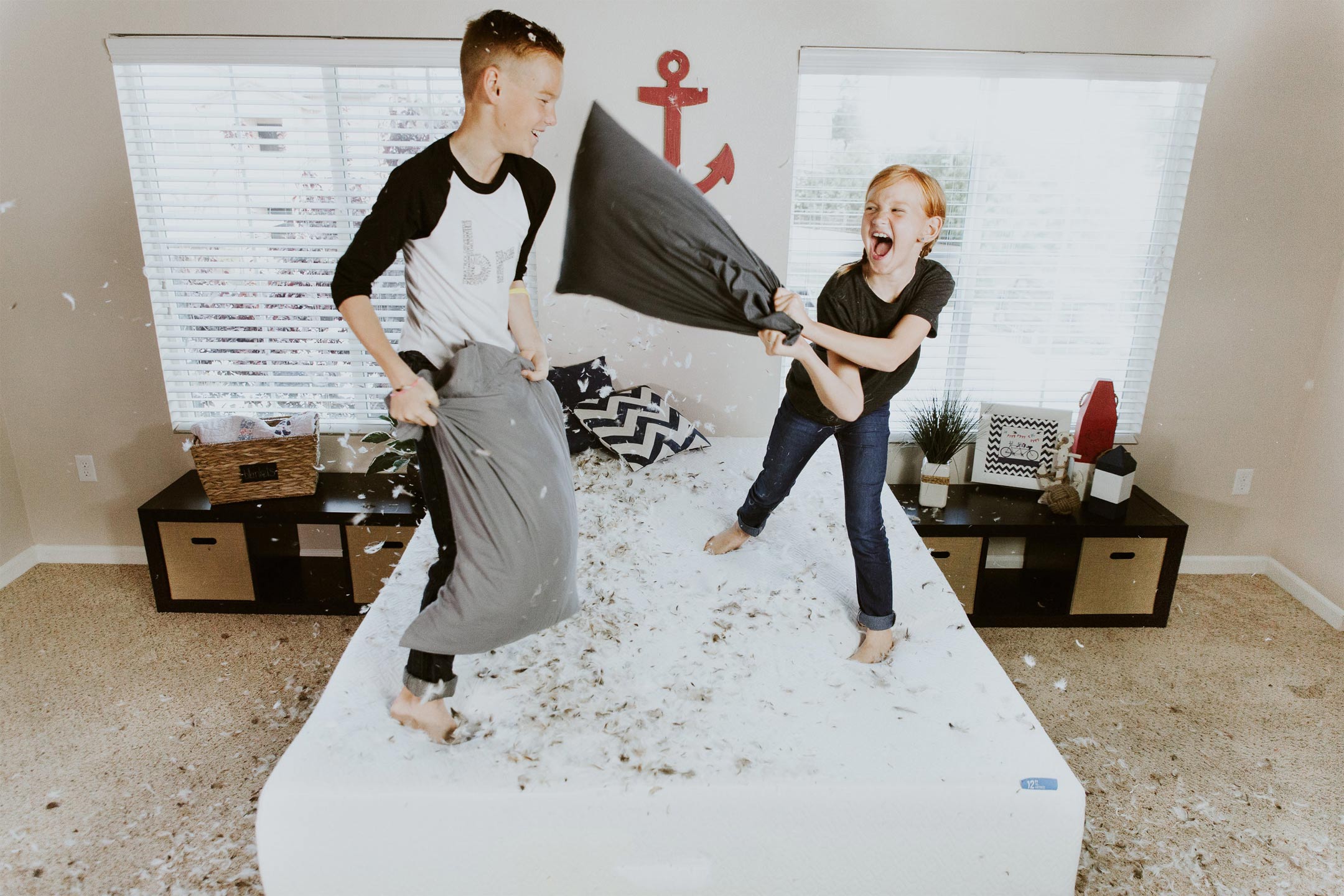
18 Jun Want the kids to help clean up their mess after a day of fun play?
Just a spoonful of imagination can make chores a breeze if you can turn the chore into one with a fun outcome, suggests Dr Yeshe Colliver
Have the weeks on end at home with your young children during lockdown sapped the magic from the moments you have together? The long days, the lack of support (no more Nanna Day Thursdays), and the extra parenting KPI’s (“What? Now I’m their teacher too?”). … Who has time to set up, let alone clean up after all those fun activities they do at childcare like finger painting and building 6–foot block towers?
You’ve likely been bombarded by the endless rhetoric about how good play is for little kids. But one thing that no one ever mentions is that being imaginative is just as helpful for your to-do list (and your sanity).
Only in the last few years is research revealing imagination boosts skills. You may have thought imaginary friends only haunted toddlers dosed up on red cordial, but it turns out 2 out of 3 normal kids will have had one by age 7, and as a result, have improved understanding of others’ perspectives and emotions, and are able to tell a better bedtime story. That kid talking to herself in the supermarket aisle may actually have been using her imagination to challenge herself to combat the boredom of shopping. Interesting experiments with the caped crusader Batman reveal that pretending allows kindergarteners to persist longer in mundane tasks, remember more, and have better attentional control.
But how does this help a parent stuck between a pile of unwashed nappies and a two-year-old tantrum? Rather than yelling, “Patrick, get those toys back in their box, pronto!” you may get more floor space by asking “Postman Pat” to pick up all those small “parcels” on the carpet into his “post van” to deliver tomorrow. You’ll know exactly when you’ve created enough of a background story for this imaginary play by the fact that he magically starts putting the toys away.
“I did that when I sprinkled fairy dust on her broccoli and it didn’t work!” I hear you say. Well, that may be because your child needs to be the right character. Our recent experiments found that children pretending to be goodies outperformed on memory and self-control tests, but wise wizards (and witches) topped them all. So it may help to pick a character that’s best for the job.
Unless I invest a minute establishing an imaginary narrative beforehand, I’ve never been able to get my nearly-three-year-old to stand with his mouth open, patiently staring at the wall while I brush his teeth. He needs to be the open mouth of (the oh-so patient) Luna Park so all the “children” (the toothbrush) can get in and out. The character’s patience rubs off on him.
Many instances of children acting out can be put down to wanting more challenge and excitement, and pretend play that aligns with children’s interests can help us keep up with their voracious appetite for learning and engagement, as children “fill in the blanks” with what they most like to imagine.
Ever wondered why the scariest parts of a movie are where you can’t see the villain? Imagination does all the work: it adds your biggest fears (not the director’s), and that’s why it’s engaging. So challenge your bored child by finding the character that has the skills your child needs for the task.
And while it’s good to challenge children in areas they struggle, remember Dan Siegel and Tina Bryson’s “HALT” checklist: Are they “Hungry, Angry, Lonely, or Tired?” – Because no one can challenge themselves when any of those things, so all chores will be uphill. Really listening to what excites children will help you share the fun, and provide inspiration for imaginary play scenarios that extend their thinking. Responsive parenting apparently even cures the Terrible Twos and entering into their play will extend their learning. A spoonful of imagination may get that magic back.
Challenge your children to shorten your ‘to-do’ list
Challenging your child using imagination may help homeschooling too. Researchers are now turning to play-based interventions to improve problem-solving, literacy, numeracy and attention span, and 22 studies show playful teaching is significantly more effective than just adult instruction.
So perhaps before embarking on the next mundane household task, ask “How can I relate this to something my Little One likes?” Getting Georgie’s paint-covered fingers clean may be easier if her fingers become dads singing in the shower, and dissembling that block tower quieter if you imagine putting sleeping block “babies” into their box “bed” together. It’s no silver bullet, but it is a silver lining.
Yeshe Colliver, PhD. Australasian regional editor: Early Child Development & Care Journal. Lecturer, Macquarie School of Education.

